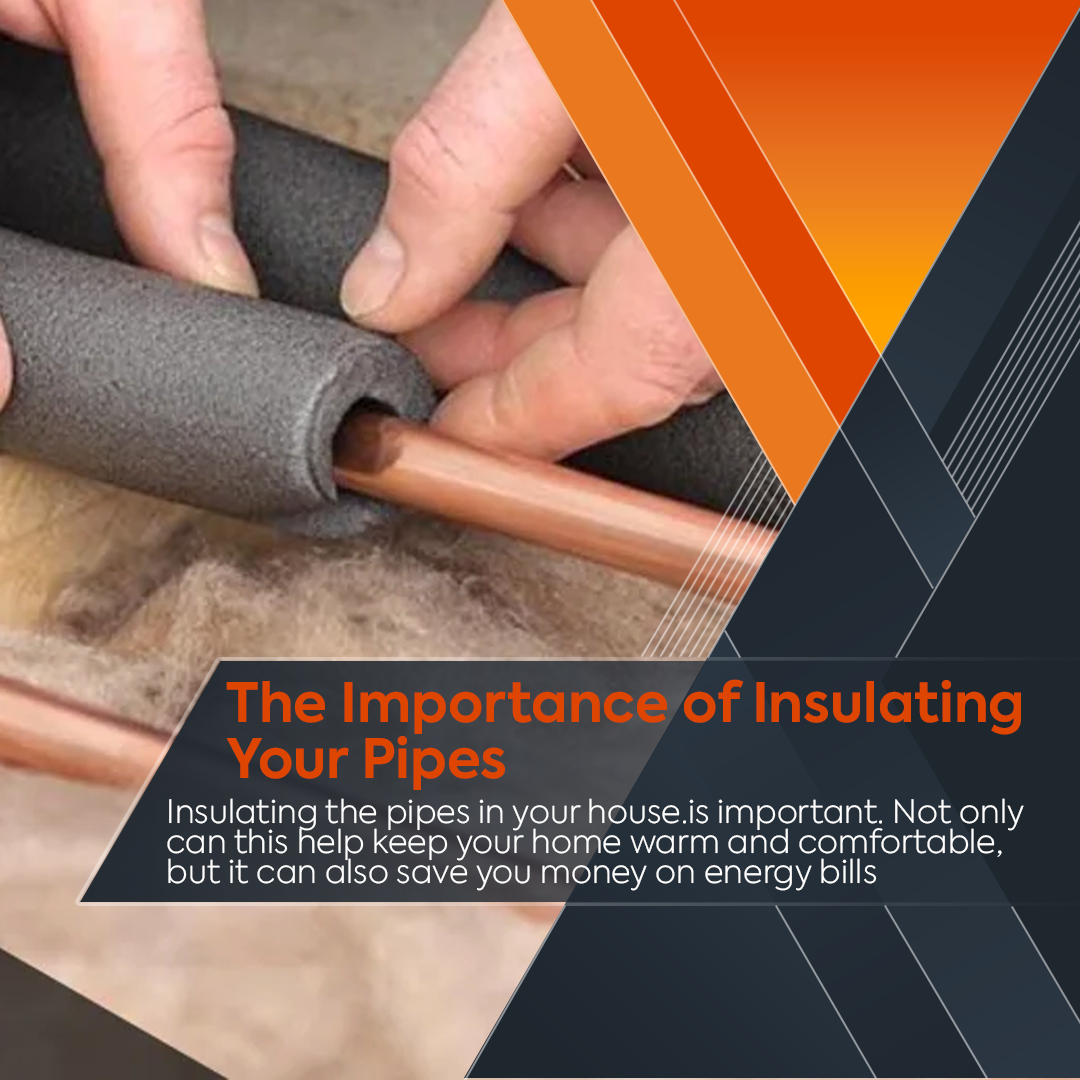There are several reasons why it's important to insulate the pipes in your house:
Prevent Frozen Pipes
Frozen pipes can be a major problem during the winter months. When water freezes inside a pipe, it can cause the pipe to burst, leading to costly water damage and repair bills. By insulating your pipes, you can help prevent them from freezing in the first place.
Save Energy
Insulating your pipes can also help you save energy and money on your heating bills. When hot water travels through uninsulated pipes, it can lose heat and take longer to reach its destination. This means you'll need to use more energy to keep your home warm and comfortable.
Protect Against Heat Loss
In addition to preventing heat loss from hot water pipes, insulation can also protect against heat loss from cold water pipes. In some cases, cold water pipes can become coated with condensation, which can lead to moisture problems and mould growth. Insulating these pipes can help prevent these issues and protect your home's indoor air quality.
Reduce Noise
Insulating your pipes can also help reduce noise in your home. Pipes that are not insulated can create loud banging and clanging sounds when water is turned on and off. Insulation can help muffle these sounds and make your home a more peaceful place to live.
How to Insulate Your Pipes
If you're ready to insulate your pipes, here are some tips to get started:
Identify the Pipes to Insulate
Before you begin, it's important to identify which pipes in your house need insulation. Generally, you'll want to insulate hot water pipes that run through unheated spaces, such as basements, garages, and crawl spaces. You may also want to insulate cold water pipes that are prone to condensation.
Choose the Right Insulation
There are several types of insulation that can be used to insulate pipes, including foam, fiberglass, and rubber. Be sure to choose an insulation material that is appropriate for your pipes and the environment they are located in foam insulation is most common in UK houses and comes in various wall thicknesses.
Measure and Cut the Insulation
Measure the length of the pipes you need to insulate and cut the insulation to the appropriate size. Be sure to leave some extra insulation on the ends to help ensure a tight fit.
Install the Insulation
Slide the insulation over the pipes and secure it in place using tape or wire. Be sure to seal any gaps or seams to help prevent heat loss.
Consider Hiring a Professional
If you're not comfortable insulating your pipes yourself, consider hiring a professional plumber to do the job for you. A professional plumber can ensure that the insulation is installed properly and can identify any potential issues with your plumbing system that may need attention.
In conclusion, insulating the pipes in your house is an important step in protecting your home from the cold weather and preventing costly damage to your plumbing system. By taking the time to insulate your pipes, you can save energy, reduce noise, and keep your home warm and comfortable all winter long.

